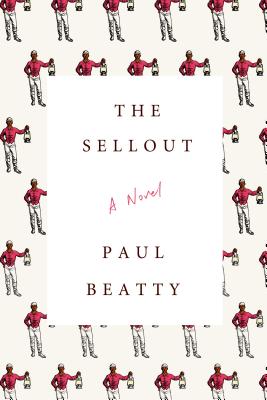Paul Beatty
Picador/Farrar, Straus and Giroux

|
Five white kids, their backpacks filled with books, rape whistles, and mace, hopped off a rented school bus and attempted to reintegrate Chaff Middle School, where Assistant Principal Charisma Molina stood in the doorway, barring entrance to her quasi-segregated institution…Shoulders hunched and arms held up protectively in front of their faces, the Dickens Five, as the quintet would come to be known, braced themselves for the pillory of rocks and bottles as they ran the gauntlet and into history. But unlike Little Rock, Arkansas, on September 3, 1957, the city of Dickens didn’t spit in their faces and hurl racial epithets; rather, it begged them for autographs, asked if they already had dates for the junior prom… from The Sellout |
Satire not for the faint-hearted
The satirist shows us the absurdity of what we take for granted. By exaggerating and magnifying what’s “normal,” we see its inherent irrationality, even insanity (Think Joseph Heller’s anti-war classic Catch-22, which this book pays homage to.). In the exaggeration, we see its truth.
For those who value the status quo—rulers, conservatives, those generally over thirty—satire can be uncomfortable, and not surprising, through the ages satirists have run the risk of being thrown in the tower and/or beheaded, or having a fatwa declared on them, or more recently, been accused of “cancelling culture.”
And Paul Beatty’s The Sellout is an uncomfortable book. It is also a hilarious one. Winner of the 2016 Man Booker Prize & National Book Critics Circle Award, it is less a traditional novel (forget “plot points,” “narrative arcs,” and “character development”) and more a jazz-like riff on race in contemporary America.
The story, as best I can understand it, goes something like this: the narrator tries to save Dickens, his low-income town south of Los Angeles from being eliminated. Among his ideas are reverse segregation (“Apartheid united black South Africa, why couldn’t it do the same for Dickens?”) He begins by putting up “No Whites Allowed” signs throughout the town, then sets about to segregrate the all-Black Chaff Middle School (“Two hundred kids quieted and turned their attention deficit disorders toward me.”) As part of Black History Month, he proposes they include Whitey Week. He sets out to find another town in the world that’s similar enough to Dickens to become sister cities. Candidates are Juárez, Kinshasa, and Chernobyl. A local Black politician joins the crusade, adapting American classics to the modern Black reader, including Uncle Tom’s Condo, The Great Blacksby, and The Pejorative-Free Adventures and Intellectual and Spiritual Journeys of African-American Jim and His Young Protégé, White Brother Huckleberry Finn, as They Go in Search of the Lost Black Family Unit.
There is something here to offend everyone—conservatives, liberals, racists, racists who don’t think they’re racists, academics, protestors, anti-protestors, the media—filled with the kind of humor that makes you cringe while laughing--Oh, yeah, it’s also unapologetically profane, with a generous use of the N-word, as well as the B-word, the S-word, the B+S word, and of course the F-word in all its many and creative variations. (I found it difficult to even find a short excerpt suitable for a family magazine.)
In the tradition of Mark Twain and H. L. Mencken, Paul Beatty is a master satirist showing us the outrageous and absurd truth of our time.
This review first appeared in The Columbia River Reader (May 15, 2021.) Reprinted with permission.

